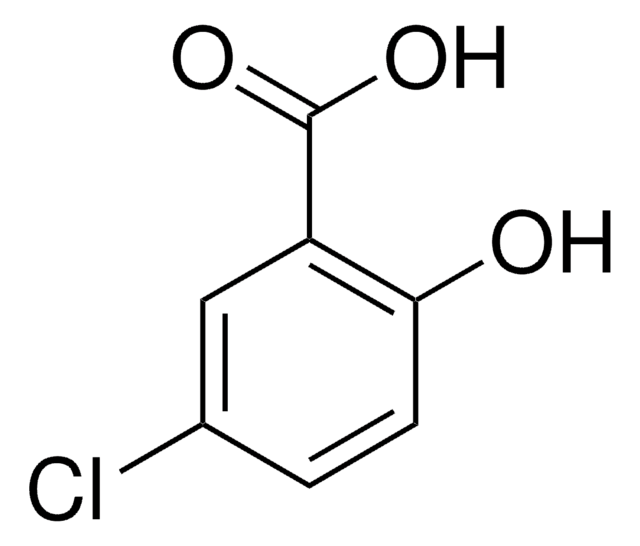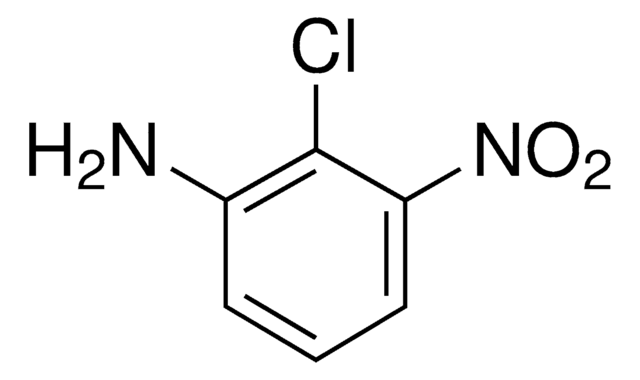101664
4-Chloro-2-nitroaniline
99%
Synonym(s):
1-Amino-4-chloro-2-nitrobenzene
About This Item
Recommended Products
Quality Level
Assay
99%
autoignition temp.
964 °F
mp
117-119 °C (lit.)
functional group
chloro
nitro
SMILES string
Nc1ccc(Cl)cc1[N+]([O-])=O
InChI
1S/C6H5ClN2O2/c7-4-1-2-5(8)6(3-4)9(10)11/h1-3H,8H2
InChI key
PBGKNXWGYQPUJK-UHFFFAOYSA-N
Looking for similar products? Visit Product Comparison Guide
Related Categories
Signal Word
Danger
Hazard Statements
Precautionary Statements
Hazard Classifications
Acute Tox. 1 Dermal - Acute Tox. 2 Inhalation - Acute Tox. 2 Oral - Aquatic Acute 1 - Aquatic Chronic 2 - STOT RE 2
Storage Class Code
6.1A - Combustible acute toxic Cat. 1 and 2 / very toxic hazardous materials
WGK
WGK 2
Flash Point(F)
375.8 °F
Flash Point(C)
191 °C
Personal Protective Equipment
Choose from one of the most recent versions:
Already Own This Product?
Find documentation for the products that you have recently purchased in the Document Library.
Customers Also Viewed
Our team of scientists has experience in all areas of research including Life Science, Material Science, Chemical Synthesis, Chromatography, Analytical and many others.
Contact Technical Service











